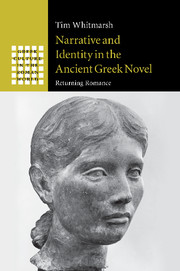3 - Hellenism at the edge
Heliodorus
Published online by Cambridge University Press: 03 May 2011
Summary
When day had just begun to smile, and the sun was beaming down onto the peaks, men armed like bandits crept over the summit of the hill that overlooks the so-called Heracleiotic mouth of the Nile, where it pours into the sea …
Practised readers of the romance – even after Achilles Tatius' flamboyant opening – would have been bamboozled by the beginning of Heliodorus' Charicleia and Theagenes. These first words unsettle. We begin with a striking, disorientating metaphor, which would become famous in Byzantine times. How do we read the day's enigmatic ‘smile’? Is it benign, mocking, or threatening? More generally, what is the narrative context? Other romances open straightforwardly with diegetic material establishing the parameters of place, characters and sometimes period. For sure, Heliodorus gives us some orientating markers here, but they are notably hazy: temporality (just after sunrise – but on what day, why?), geography (the ‘so-called’ Heracleotic mouth of the Nile) and prosopography (‘men armed like bandits’ – but are they really bandits?).
Matters do not become any clearer after this. The focalisation shifts to the bandits, as they attempt to decipher the scene before them: a laden ship, and the shore strewn with signs of feasting and carnage. The panorama is aporetic to them: after having surveyed the ship and the shore, ‘at a loss (aporountes) as to what had happened’. It is as if we had reached book 22 of the Odyssey without the earlier narrative to prepare us.
- Type
- Chapter
- Information
- Narrative and Identity in the Ancient Greek NovelReturning Romance, pp. 108 - 136Publisher: Cambridge University PressPrint publication year: 2011



